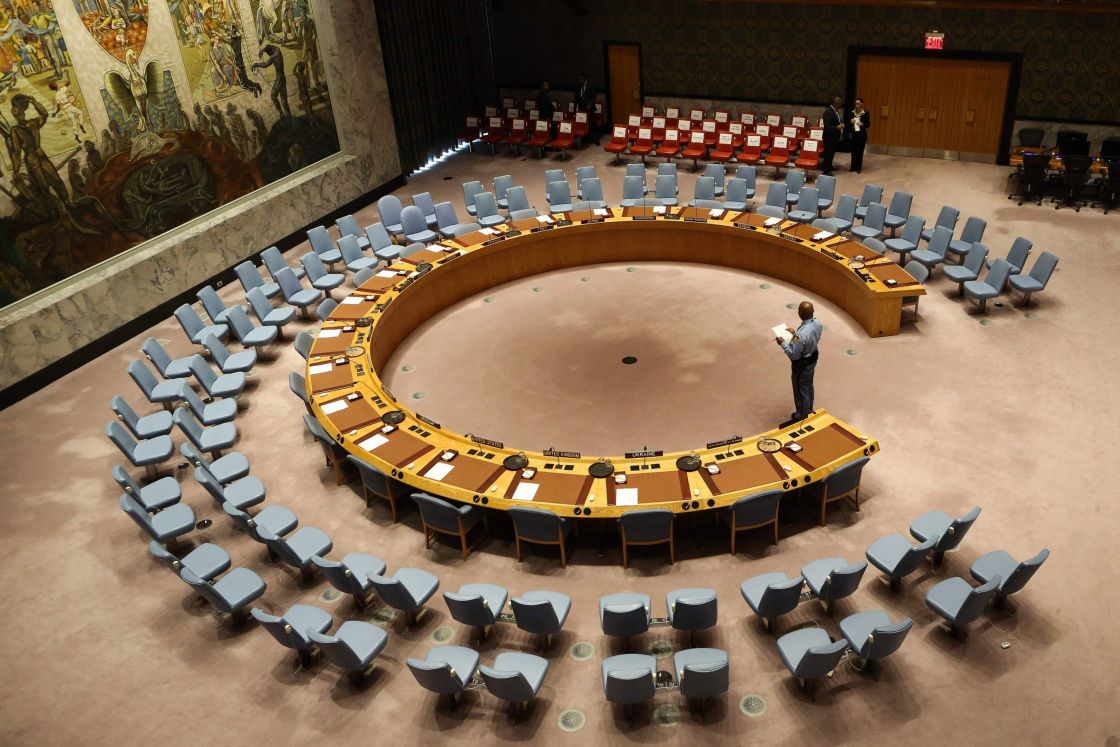- Editorials
- Posted
Kassioun Editorial 1127: Restoring and Strengthening National Sovereignty: 2254
Extremists within the Syrian sides continue to attach UNSC Resolution 2254 using various means and pretexts, in both direct and devious ways, some even completely contradictory. There are those who say that the resolution is much less than what is required and therefore it must be rejected; then there are those who say that it a Security Council resolution, and therefore it is supranational, and particularly of Western origin, and therefore it goes against Syria and its interest. Then there are those who say that the resolution has been implemented and things are over. Of course, some of those who say some of these opinions based on sincere intentions accompanied, unfortunately, by a clear ignorance in reading reality and history.
To put things in perspective, the following must be clarified:
First: The behavior of international institutions (UN, Security Council, etc.), by passing or blocking resolutions, reflects at every moment the international balance and its developments. Dealing with these resolutions should consider this fact and the extent to which they are compatible with the interest of the country and the people. For example, should we reject UNSC Resolutions No. 242 and 338, which call for the withdrawal of “Israel” from the lands it occupied in 1967 because the West agreed to them?
Second: Within the understanding of the international balance and its shifts, it should be recalled that UNSC Resolution 2254 came after a series of Russian and Russian-Chinese vetoes starting in 2011 regarding Syria. Adopting the resolution at the end of 2015 was an expression of a new stage in the development of the international power balance against Western and particularly American-Zionist interests. That is, it was an expression of the transition from simply blocking Western projects from passing through the Security Council, to imposing projects that go against the interest of the West and in the interest of the peoples. In this sense, UNSC Resolution 2254, along with the Minsk Accords, are the inaugural examples of this type of resolution.
Third: If the first Russian veto regarding Syria in 2011 marked the start of a new historical phase; it brings to the Syrian national memory the first ever veto in the UN Security Council after its establishment. That first veto was a Soviet one and also pertained to Syria, and was against letting the French colonizer obtain privileges in return for complete evacuation from Syria. The veto of 2011 also came against the West’s attempts to return to occupying Syria practically under the slogan of “protecting civilians” in the same manner it occupied and destroyed Libya.
Fourth: Going back to UNSC Resolution 2254, it was primarily Russia that pushed for it and contributed to formulating it, including its minute details. In principle, the West’s agreement to the resolution within the Security Council is exactly the same as its agreement to the Minsk Accords regarding Ukraine, which the West has publicly admitted that they did not agree to in order to implement it, but fraudulently with the goal of preparing for war against Russia. This is the case with regard to UNSC Resolution 2254, where the West agreeing to and insisting through statements on the resolution does not mean at all that the West actually supports its implementation.
Fifth: Moreover, the West’s verbal and hypocritical exaggeration in holding on to UNSC Resolution 2254 not only aims to fraudulently pass through what it wants, but especially since the Tehran meeting, this exaggeration aims to prevent the Astana countries, whose level of coordination has recently increased with the main Arab countries, from implementing the resolution by one side, that is, without involving the West. This is because the West has proven that what it wants in Syria is to “turn it into a quagmire” and drain it, and to use chaos in Syria and the region as a tool in combatting the rising international opponents which threaten continuance of the US-Western intimidation system.
In conclusion, UNSC Resolution 2254 has become a compulsory path towards restoring and bolstering Syrian national sovereignty. Likewise, refusing to fully implement the resolution, whether expressed explicitly or in a convoluted way, whatever pretexts are being promoted, practically and realistically means the continuation and deepening of the Syrian crisis further. It also concretely means siding with narrow and trivial interests compared to the interest of Syria and Syrians. Even more dangerous than all of that, this refusal means directly serving the West’s and Zionists’ plans to completely finish off Syria.


